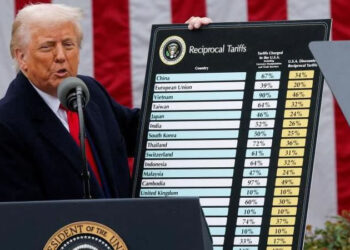A new payment platform, the Pan-African Payment and Settlement System (PAPSS), now removes legacy complexities, including the cost of cross-border payments, bolsters operational efficiencies and sets a new path to more stable and stronger African currency.
The system which is set to spur intra-Africa trade, enables traders make real-time transfers of funds from one African country to another. It went live in Ghana last week, setting in motion its roll-out to other African countries.
With this, a Kenyan customer can now pay for a product from Ghana in Kenya shillings, while the trader receives payment for the goods in Ghanaian cedi, without troublesome conversion issues, following the official launch of a revolutionary payment system in Africa.
Strengthening local currencies
The Afreximbank, Africa Union and AfCFTA initiative removes the use of the dollar and other third currencies in the transaction matrix, offering a new opportunity to create demand for, and strengthen, local currencies.
SMEs will be the biggest beneficiaries of a projected 5 billion US dollar in savings on clearance and transactional costs annually, as more people begin to use the continent’s new cross-border payment platform.
The savings will enable small businesses to unlock billions of dollars and ease the financial burden needed by traders to scale beyond their country borders to tap into the world’s largest free-trade zone, the Africa Continental Free Trade Area, with a market value of 3 trillion US Dollars.
“The commercial launch marks a significant milestone in connecting African markets seamlessly. It will provide a fresh impetus for businesses to scale more easily across Africa and is likely to save the continent more than $5 billion in transactions costs every year,” said Mike Ogbalu, Chief Executive Officer of PAPSS.
SMEs form the backbone of the African economy, representing more than 90 percent of businesses and employing about 60 percent of workers, according to the International Trade Centre.
However, central to its ‘Promoting SME Competitiveness in Africa’ report, is the revelations that African SMEs face a huge financing gap, estimated at more than 136 billion US dollars every year.
While the report affirms capital as local traders’ biggest impediment to growth due to scarcity, high interest rates, large collateral requirements and burdensome application processes, it also reveals that women traders are the hardest hit.
“It is especially difficult for women to obtain financing, as fewer African women have bank accounts, compared to men, and the legal rights of family capital and collateral can be restrictive, given local laws and customs about land ownership,” the report said.
As noted by Pamela Coke-Hamilton, International Trade Centre, Executive Director, African countries now have a commercially viable tool that can address a critical barrier for MSMEs to trade competitively- even in uncertain times, pointing to an end of the negative impact of currency exchange fluctuations.
“ITC is preparing enterprises to benefit from PAPSS, creating new opportunities for growth in cross-border e-commerce and sustainable trade,” she noted.
PAPSS has the potential to reduce transaction time to seconds, removing a major impediment to intra-African e-commerce, services, and goods trade growth.
The platform had a successful pilot in the seven West African countries – Gambia, Gambia, Ghana, Guinea, Liberia, Nigeria, and Sierra Leone – that make up the West African Monetary Zone (WAMZ).




































